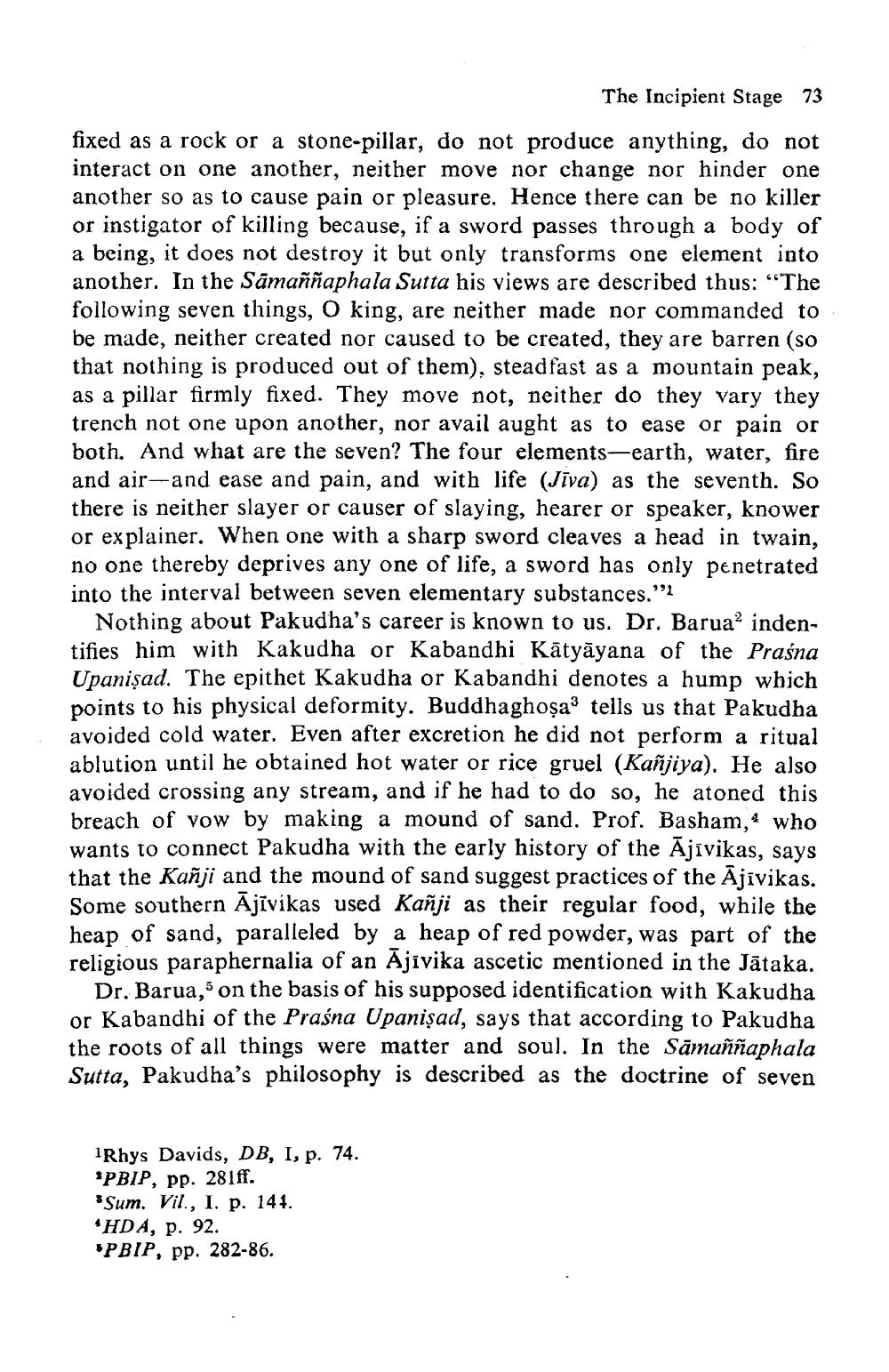________________
The Incipient Stage 73
fixed as a rock or a stone-pillar, do not produce anything, do not interact on one another, neither move nor change nor hinder one another so as to cause pain or pleasure. Hence there can be no killer or instigator of killing because, if a sword passes through a body of a being, it does not destroy it but only transforms one element into another. In the Sāmaññaphala Sutta his views are described thus: “The following seven things, O king, are neither made nor commanded to be made, neither created nor caused to be created, they are barren (so that nothing is produced out of them), steadfast as a mountain peak, as a pillar firmly fixed. They move not, neither do they vary they trench not one upon another, nor avail aught as to ease or pain or both. And what are the seven? The four elements-earth, water, fire and air-and ease and pain, and with life (Jīva) as the seventh. So there is neither slayer or causer of slaying, hearer or speaker, knower or explainer. When one with a sharp sword cleaves a head in twain, no one thereby deprives any one of life, a sword has only penetrated into the interval between seven elementary substances."
Nothing about Pakudha's career is known to us. Dr. Barua indentifies him with Kakudha or Kabandhi Kātyāyana of the Praśna Upanişad. The epithet Kakudha or Kabandhi denotes a hump which points to his physical deformity. Buddhaghoșatells us that Pakudha avoided cold water. Even after excretion he did not perform a ritual ablution until he obtained hot water or rice gruel (Kanjiya). He also avoided crossing any stream, and if he had to do so, he atoned this breach of vow by making a mound of sand. Prof. Basham,+ who wants to connect Pakudha with the early history of the Ājivikas, says that the Kanji and the mound of sand suggest practices of the Ājivikas. Some southern Ājīvikas used Kañji as their regular food, while the heap of sand, paralleled by a heap of red powder, was part of the religious paraphernalia of an Ajivika ascetic mentioned in the Jātaka.
Dr. Barua, on the basis of his supposed identification with Kakudha or Kabandhi of the Praśna Upanișad, says that according to Pakudha the roots of all things were matter and soul. In the Sāmaññaphala Sutta, Pakudha's philosophy is described as the doctrine of seven
IRhys Davids, DB, I, p. 74. *PBIP, pp. 281ff. *Sum. Vil., I. p. 141. *HDA, p. 92. PBIP, pp. 282-86.




